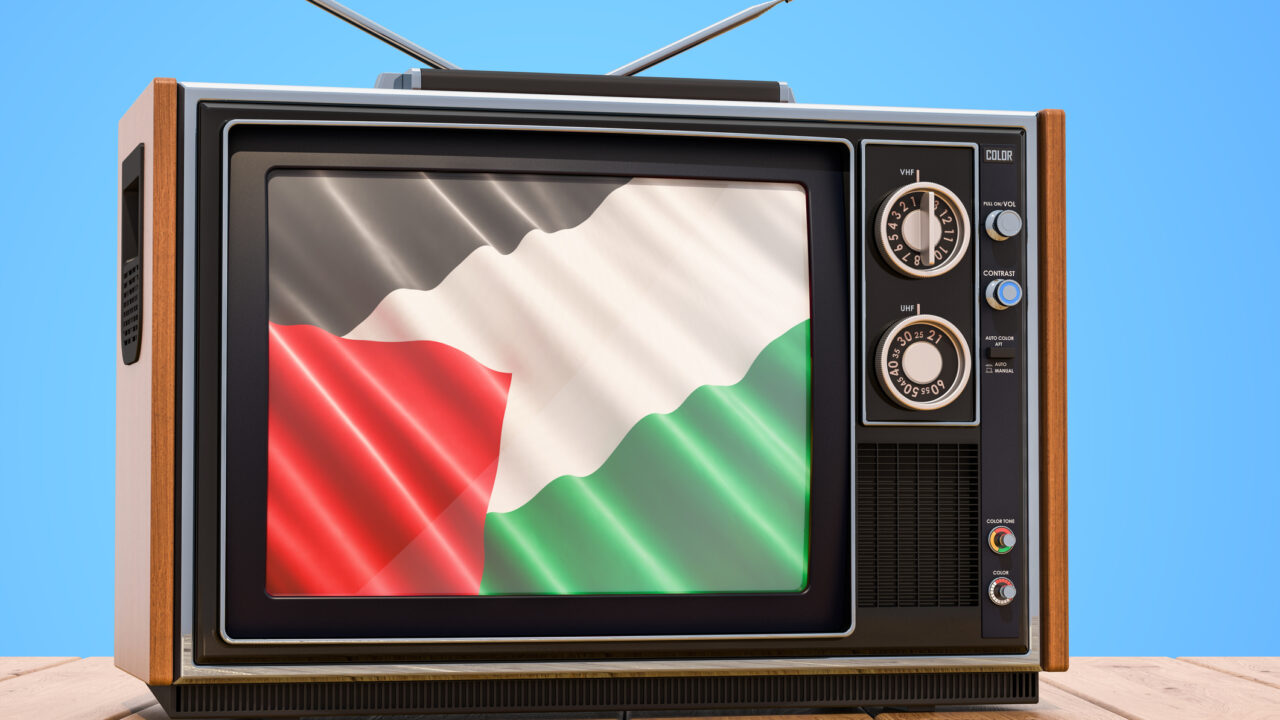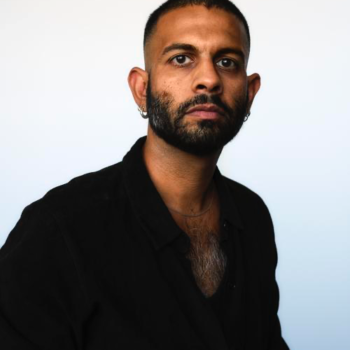For over eleven months the world has witnessed Israel murder over 42,000 Palestinians in Gaza. That number, shocking as it is, is absolutely an undercount. Thousands — perhaps tens of thousands — remain trapped under the rubble of destroyed buildings. Not only has the infrastructure for saving lives collapsed, but so too has the ability to properly record deaths. The destruction is so extensive as to make even a comprehensive count of casualties out of reach.
All of this is part of the Zionist entity’s genocidal project of a “second Nakba,” to quote more than one Israeli government minister. There is no hyperbole here. The Israeli occupation has targeted every hospital in Gaza, leaving most destroyed and the remainder barely functioning. The Gaza municipality has taken to online crowdfunding to restore water and sanitation amidst a full-blown famine and rising infectious disease.
Culture too is a target. Zionist forces have razed — systematically, deliberately, and in full view of the world — every university in Gaza. Museums have been bombed, archives burned, schools turned into sites of mass killing. Far from being secondary to Israel’s genocidal campaign, the methodical destruction of culture reveals that the goal is not only the ruination of individual Palestinian lives in their tens of thousands, but Palestinian life itself.
In the global struggle for a free Palestine, culture is a battleground. Just as Israel targets Palestinian culture in its campaign of genocidal elimination, it relies on its own cultural image to project a façade of legitimacy. Israeli Netflix shows. Eurovision entries. Academic exchanges and partnerships with Israeli universities. These are all distractions from the true nature of the Zionist project on display in Gaza — tools of normalization in the most literal sense. They are meant to create the illusion that Israel is a normal state even as it drops 2-ton bombs on tents of refugees in Rafah, leaving parents to pick up the bodies of their decapitated children. How can we pierce this illusion?
If culture is a battleground, then cultural boycott is both a tactic and a weapon. It is a refusal of complicity that is both symbolic and material; its power lies not only in declaring opposition, but in refusing participation with and support for genocide, occupation, and apartheid. The Palestinian Campaign for the Academic and Cultural Boycott of Israel (PACBI) has existed since 2004 with the goal of transforming symbolic opposition into material refusal. As culture workers, we are called upon to concretize our outrage and indignation at the ongoing atrocities in Palestine into durable, institutional change.
A founding member of the broader BDS movement, PACBI has led the cultural, academic, and sports boycotts of Israel’s 76-year-old regime of settler-colonialism and apartheid. The organization is built around a call made by Palestinian civilians to artists, culture workers, scholars, and intellectuals across the globe to recognize the role that their venues play in providing ideological cover for Israel’s ongoing occupation of Palestinian land and the genocide of its people. PACBI’s call offers guidelines asking that cultural and academic institutions make a public commitment to refuse collaboration with or to receive material support from Israel, its lobby groups, or any of its complicit institutions. Just as cultural institutions themselves can refuse donations from corporations identified by BDS as being complicit in genocide, individual artists and culture workers may also engage in the boycott. For example, filmmakers may refrain from screening their films in festivals or as part of other programs that receive direct funding from Isreali state entities.
The guidelines also ask that institutions and individuals refrain from organizing or participating in activities that whitewash or normalize Israeli’s apartheid and genocide. An example of such an activity would be an event that brings Palestinians or other Arabs together with Israelis without publicly recognizing Israel’s war crimes and the UN-affirmed inalienable rights of the Palestinian people. These demands work against the violent erasures of life and heritage enacted by the state, flattening the power differential between a colonized people and their colonizers, leaving no path toward liberation. PACBI’s call for boycott ends when Israel’s apartheid regime is dismantled and Palestinians are given the right to return home to their ancestral lands from which they have been ethnically cleansed for decades.
Inspired by the diverse forms of boycott that led to the end of apartheid in South Africa, by the US Civil Rights movement, and by the role that boycotts play in all decolonial struggles, PACBI highlights how culture can enable—but also resist—systems of oppression. The strategy is to build grassroots power to affect policy change that ends complicity with Israel’s regime from within the cultural domain itself, particularly since Israel desperately tries to artwash its ongoing settler-colonialism, ethnic cleansing, apartheid and now genocide against Indigenous Palestinians. At the heart of PACBI’s guidelines is a commitment to freedom of expression and to the fight against racist and systemic discrimination. The boycott does not target individuals according to their nationality or beliefs, and thus firmly rejects Islamophobia, anti-Semitism, and the mendacious principles of white supremacy and Zionism. Instead, PACBI’s call targets funding and cooperation with cultural institutions themselves, and their role in culture-washing Israeli war crimes.
Adherence to PACBI’s guidelines provides a more sustainable form of solidarity than representation or programming can offer. It may be better understood as a prerequisite condition for developing meaningful expressions of solidarity with the Palestinian people. We don’t have to remember any further back than 2020, when, after the police killing of George Floyd, cultural institutions rushed to signal their solidarity with performative social media statements touting support for Black life rather than using the moment to divest from complicity or to articulate their willingness to change their own relationship to structural racism, or gentrification, or the sources of funding, or the ideological makeup of their boards. Crucially, the PACBI call gives cultural institutions the means through which they might make a sustainable commitment to having ongoing discussions about how cultural production relates to human rights on all levels, from sources of funding to programming. What’s more, it offers culture workers and their institutions—museums, literary centers, performance venues, film festivals, universities, and media outlets, among them—the opportunity to be part of a collectively led, organized, strategic attack on the power structures that guarantees Israel’s ability to wage war and maintain occupation and apartheid.
No cultural institution is too small to endorse the PACBI boycott. Following a public announcement made by the Poetry Project at St. Mark’s Church in New York City endorsing PACBI’s call, more than 200 cultural organizations in the US and abroad have issued statements making their political commitments clear. Literary magazines, small presses and publishing houses, music labels and podcasts, art galleries, performance venues, film festivals, residencies, and other public programs, many of which have never had any material ties to Israeli state funding, have embraced the opportunity offered by PACBI to play an active role in the fight against the Zionist entity by becoming advocates for BDS.
These endorsements are only part of the eruption of solidarity with Palestine and an unprecedented rejection of Zionism occurring worldwide. Every week, cities around the world are thronged with protesters demanding a ceasefire—and a free Palestine, from the river to the sea. Writers, filmmakers, musicians, and artists, along with university faculty members and students are organizing to pressure their institutions to make meaningful divestments from Israel’s genocidal regimes—and they are succeeding. Even in the US and Western Europe, cracks are beginning to appear in the wall of support for Israeli apartheid. Yet, there is still no ceasefire, and even when a ceasefire does come, the work of Palestinian liberation will continue. Even as we mobilize in the present crisis, we must plan for the future, and make an accountable institutional framework that exceeds the gestural posturing of the one-off statements — PACBI offers us a way to do that work. There are effects an endorsement can make — ones that may not repair buildings in Gaza or revitalize the dead, or make grieving loss any easier. They do function, however, in creating new sites for allies to congregate outside of occupied Palestine — a new cultural world stage on which Israel plays no part.

